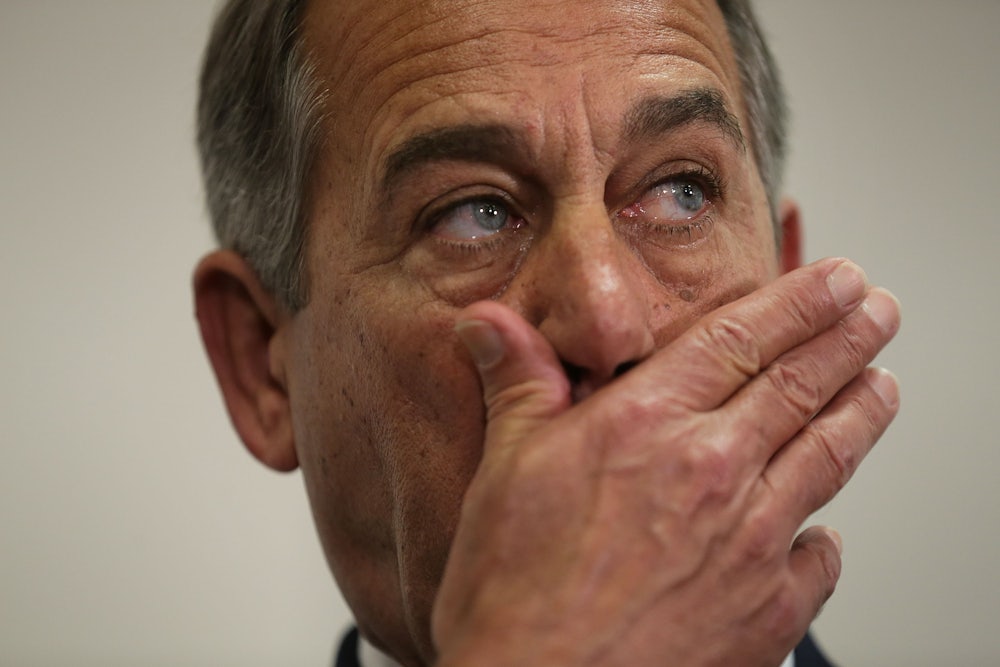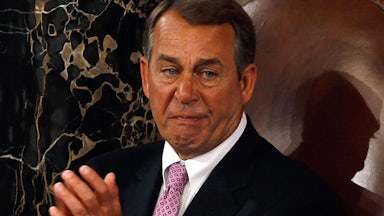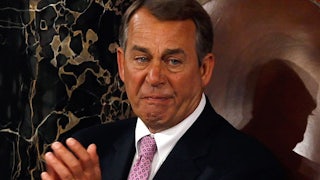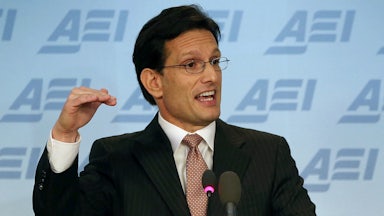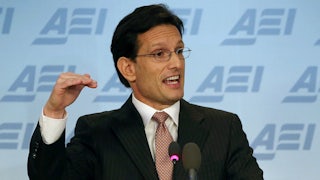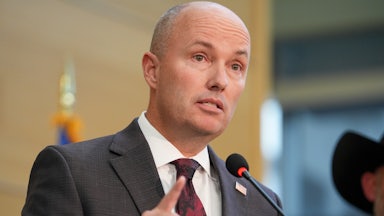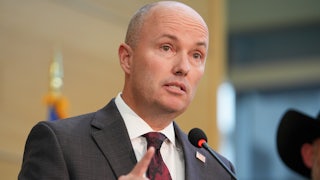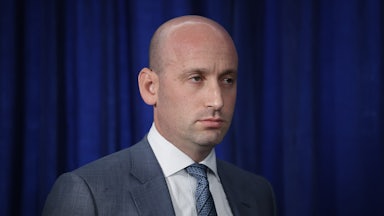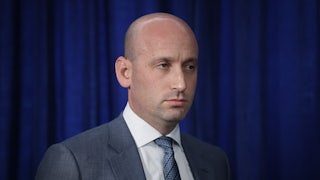John Boehner wants you to know how appalled he is by a faction of the right whose rise he actively facilitated. In excerpts of his new memoir, On the House, that were published in Politico and reported on by numerous outlets last week, the former House speaker bemoans the “crazies” who now dominate a Republican Party he insists left him behind. The January 6 Capitol riot, he told The New York Times, was driven by “Trump refusing to accept the results and stoking the flames of conspiracy that turned into violence in the seat of our democracy, the building over which I once presided.”
While he rightfully connects the insurrection to “whack jobs” in the party like Ted Cruz, whom Boehner derides as an “asshole” every chance he gets, he locates the problem’s antecedents somewhere around 2010, when the Tea Party movement apparently struck the once-honorable Republican Party like a meteor. For the most part, the journalists who have shared these excerpts hither and yon have endorsed Boehner’s revised self-portrait as a beleaguered hero to stately norms. Politico’s own sub-headline made this explicit: “How America’s center-right party started to lose its mind, as told by the man who tried to keep it sane.”
This narrative is utter baloney. Not only did Boehner himself boost those “crazies” and arguably benefit from their rise, the entire Republican Party did, as well. In fact, whipping up that craziness has since become a key component of the right’s strategy to cobble together a coalition in support of its otherwise unpopular plutocratic agenda—which Boehner consistently upheld throughout his political career, and even now continues to serve from K Street.
Since the 1980s, the Republican Party has acted as little more than a wish-fulfillment vehicle for capital: a project in which Boehner happily enlisted after parlaying his successful business career into state and later national politics. He went on to become a key figure in the Republican resurgence of the 1990s, co-authoring, with Newt Gingrich, the “Contract With America” that set out a cohesive party agenda calling for things like lower taxes, less government spending, pro-business policies, and welfare reform. According to the Center for Public Integrity, throughout his career Boehner voted in line with the Chamber of Commerce 93 percent of the time, versus 5 percent of the time with organized labor. He was also among the biggest recipients of corporate donations in Congress and famously handed out campaign checks to his caucus on the floor of the House, all courtesy of the tobacco industry.
The 1990s and early 2000s were good years for the right, largely marked by the triumph of the very things Boehner and his peers sought to do (and for which the Democrats often joined them, to their discredit): entitlement reform, free trade agreements, the decline of labor and soaring stock markets, and major tax and spending cuts. It’s hard to see how all of this could have been possible without the rise of right-wing media, which could act as the party’s propaganda arm and shore up votes for oligarchy by stoking moral panic over issues like gay marriage—beckoning an earlier breed of “crazies” to the Republican base.
As George W. Bush’s support cratered in the mid-2000s, the country fell into recession and elected its first Black president in a landslide, setting the stage for a shift in the Republican Party that Boehner now claims was totally novel. Lest we forget, once Obama and a filibuster-proof Democratic congressional majority came to power, Boehner became a fervent and histrionic voice against the Affordable Care Act, keeping pace with any of the other reactionary cranks his party deployed against the most downwardly redistributive piece of legislation in generations. Boehner even staged a rally from the Capitol steps to rile up opposition to the prospective law, alongside members of the very insurgent movement he now derides as Tea Party crazies; the effort ensured he would clinch the necessary votes to become speaker of the House in 2010.
The broader right-wing ecosystem echoed increasingly unhinged attacks on the ACA; the scandalizing of so-called “death panels” most readily comes to mind. The conservative movement also gleefully tapped into racist resentment of Obama, as well as boosting the nativist sentiment that had, by that time, already been primed by the years-long “war on terror.” These efforts helped the GOP win back Congress and effectually block much of Obama’s agenda for the rest of his presidency. The effect grew even stronger the next election after redistricting, when gerrymandering made red districts even redder, selecting for even more outrageous candidates who could now spread their messages on social media.
If the Tea Party is often framed as Boehner’s memoir depicts it—as an uprising of “crazies” against the Republican establishment—the real story is one of pure and unadulterated continuity. The Tea Party pitted itself against so-called Republicans in Name Only, or “RINOs,” and opposed immigration reform efforts as well as any collaboration or compromise with Democrats. And overwhelmingly, it opposed taxes and government social spending, just as other Republicans did. It’s really no wonder that the billionaire Koch brothers gladly underwrote the movement, as they’d similarly seeded the ambitions of the Republican Party.
But to hear Boehner tell it, as the Tea Party gained strength, its new members cared more about TV slots than good governance—though he carefully neglects to mention just how much his own speakership depended on that Tea Party fury, which his grating new colleagues kept pumping through media channels and town halls after they took their seats in Washington. Boehner did little to rein in the scorched-earth tactics of the Tea Partiers: His diffidence famously led to a 2013 government shutdown, in which the extremists in his party refused to pass a budget that funded Obamacare.
It was only at this point that Boehner came to typify the type of RINO that the right had primed its audience to revile, ultimately sparking his decision to resign from Congress in 2015. But for all of Boehner’s latter-day resentments, his legacy by the numbers lined up with his ambitions: The GOP won some $3 trillion in spending cuts during his tenure—a result consistent with his teeming ambitions, fully in line with what he pledged to do with Gingrich back in the 1990s.
Per Boehner’s story, the Trump era only pushed the crazies of his tenure to crazier new heights. He isn’t completely wrong: If the rise of the Tea Party presaged a Republican Party that increasingly depended on unleashing high-test outrage to hold onto power, Trump’s media prowess and his absolute refusal to be shamed made him better at that job than anyone who had come before. Under Trump’s watch, “triggering the libs” became a political strategy in its own right, launching what essentially became a Beltway version of “The Aristocrats,” in which right-wingers clamber with greasy abandon to top one another in a dread game of one-upsmanship to see who might spark the most dramatic liberal meltdown—a dynamic that ultimately contributed toward horrific policies like family separation, as well as the Capitol riot itself.
It is these latter days of Republican extremism that Boehner would prefer to disclaim. But what he fails to mention is that Trump hardly invented these frenzies. It was Boehner’s own wish list of policy prescriptives and political wedges that primed the pump for the Tea Party surge in the first place. And if Boehner is right that Trump and his ilk have less regard for the sacred institutions of government than Boehner himself does, they’ve nonetheless used those institutions to deliver things that Boehner wanted: The Federalist Society stacked judicial benches with dozens of nominees, Republicans loosened business and environmental regulations, they also passed a multibillion-dollar tax cut and piled up administrative burdens that booted millions of people from public insurance programs.
These are the same ambitions that Boehner offered to the “crazies” he now claims to deplore, back when they were driving blowout electoral victories for the Republican Party. The only reason he’s willing to call them out with so much swagger now is that he’s graduated to K Street, where he now aids and abets the cause of influence-peddling for rich and powerful industries, whose bottom lines are soaring higher than they ever could have without the “crazies” putting so many Republicans in office. Those crazies have made him very rich, and it serves his interests to pretend they have nothing to do with him.
